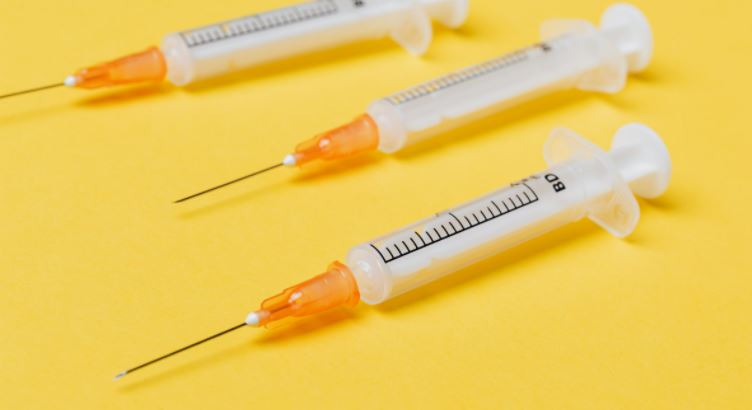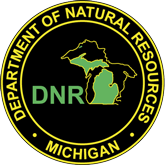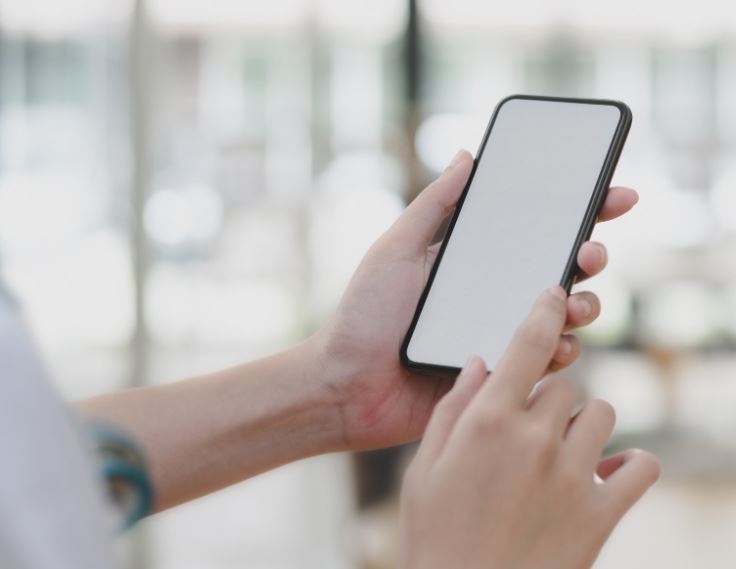March 10, 2021
Contact: Lucas Nathan, 517-599-9323 or Joanne Foreman, 517-284-5814
Alert employee’s report launches nationwide response
When an observant employee at a Petco store in Seattle, Wash. reported finding invasive zebra mussels in moss balls sold as aquarium plants, it set off a rapid response across the U.S.
March 3, aquatic invasive species coordinators across the country received notification from the U.S. Geological Survey about the concerning report made to the agency’s Nonindigenous Aquatic Species online reporting system.
 Within 24 hours, aquatic invasive species program staff from several states confirmed finding zebra mussels in supplies of moss balls distributed as Mini Marimo Moss Balls (SKU 5292944) and Marimo Moss Balls (SKU 5164031) at local Petco and PetSmart stores. Within 24 hours, aquatic invasive species program staff from several states confirmed finding zebra mussels in supplies of moss balls distributed as Mini Marimo Moss Balls (SKU 5292944) and Marimo Moss Balls (SKU 5164031) at local Petco and PetSmart stores.
Marimo moss is a form of algae from Northern Europe and Asia, and marimo moss balls are a popular aquarium plant used to generate oxygen and remove nitrates from tanks.
While the corporate stores were working to quarantine stock in compliance with an order from Petco headquarters, inspectors began finding contaminated stock on the shelves of independent stores and in store aquarium systems. The Michigan Department of Natural Resources Law Enforcement Division confirmed that infested moss balls have been found in several stores throughout the state. |
As the effort to track down infested stock continues, reports indicate that other brands including Betta Buddies and Shrimp Buddies products also may contain the invasive mussels.
Consumers should note that potentially infested products have been sold online as well as through retail outlets. It is not clear how long these products have been on the market or what other brands may be infested.
What is the concern?
 Zebra mussels are considered an invasive species in Michigan and are listed as an injurious species under the federal Lacey Act. They are extremely efficient filter feeders that can negatively affect aquatic ecosystems, clog water intake pipes and be a nuisance to boaters and swimmers. Zebra mussels are considered an invasive species in Michigan and are listed as an injurious species under the federal Lacey Act. They are extremely efficient filter feeders that can negatively affect aquatic ecosystems, clog water intake pipes and be a nuisance to boaters and swimmers.
In Michigan, an invasive species is defined as one that is not native and whose introduction causes harm, or is likely to cause harm, to the economy, environment or human health.
Regular discoveries of goldfish and other aquarium species in Michigan waters indicate that aquarium dumping – disposing of unwanted pets and plants into natural waterways – is still occurring in the state. If contaminated moss balls are not properly disposed of, or if tanks that held them are not properly decontaminated, there is a risk of zebra mussels being released into waterways. |
What is being done?
March 5, the DNR notified more than 3,000 aquatic pet and plant suppliers and hobbyists of the potential infestation, requiring them to dispose of any infested stock. Suppliers and hobbyists are assisting in notification by sharing information on their websites and to social media groups.
Conservation officers are visiting retailers to assist with identification and disposal of contaminated materials. The Department of Environment, Great Lakes and Energy and the DNR continue to coordinate response efforts with states across the nation and with the federal Aquatic Nuisance Species Task Force.
What if I purchased moss balls?
 Zebra mussels are listed as restricted under Michigan’s Natural Resources Environmental Protection Act (Part 413 of Act 451). This means that it is unlawful to possess, introduce, import, sell or offer that species for sale as a live organism, except under certain circumstances. Zebra mussels are listed as restricted under Michigan’s Natural Resources Environmental Protection Act (Part 413 of Act 451). This means that it is unlawful to possess, introduce, import, sell or offer that species for sale as a live organism, except under certain circumstances.
If zebra mussels are found on any moss balls in containers or in aquariums, infested moss balls and packaging should be frozen for 24 hours, boiled for one full minute, or submerged in bleach or vinegar for 20 minutes before double-bagging, sealing and disposing in the trash.
The DNR recommends that tank water from aquariums holding infested moss balls be decontaminated by removing plants and pets, adding 1/10 cup bleach to every gallon of water and allowing at least 10 minutes of contact time before draining. |
Report zebra mussel detections
All discoveries of zebra mussels in moss balls must be reported to the state.
Reports should be made to Lucas Nathan, DNR aquatic invasive species coordinator, at [email protected]. You can also use this contact information for assistance with inspection or proper disposal.
Prevent invasive species introduction and spread
“It is always important for sellers and consumers to check products for anything that shouldn’t be there, like hitchhiking plants, seeds, insects or, in this case, mussels,” said Nathan.
Michigan’s Reduce Invasive Pet and Plant Escapes (RIPPLE) program provides guidance for sellers and consumers on preventing aquatic invasive species introduction and spread. More information is available at CANR.MSU.edu/Invasive_Species/Ripple/.
Michigan’s Invasive Species Program is cooperatively implemented by the Department of Environment, Great Lakes, and Energy: the Department of Natural Resources: and the Department of Agriculture and Rural Development.
/Note to editors: Accompanying photos are available below for download. Suggested captions and photo credit information follow:
Moss: An invasive zebra mussel in a moss ball. Photo courtesy of U.S. Geological Survey.
ZM: Zebra mussels, shown here next to an ink pen, are usually less than 1 inch in length with stripes varying from tan to brown. Photo courtesy of Virginia Department of Conservation and Recreation.
Aquarium: Moss balls are often placed in aquariums to generate oxygen and remove nitrates from tanks. Photo courtesy of U.S. Geological Survey./ |



 Within 24 hours, aquatic invasive species program staff from several states confirmed finding zebra mussels in supplies of moss balls distributed as Mini Marimo Moss Balls (SKU 5292944) and Marimo Moss Balls (SKU 5164031) at local Petco and PetSmart stores.
Within 24 hours, aquatic invasive species program staff from several states confirmed finding zebra mussels in supplies of moss balls distributed as Mini Marimo Moss Balls (SKU 5292944) and Marimo Moss Balls (SKU 5164031) at local Petco and PetSmart stores.

 Zebra mussels are listed as restricted under
Zebra mussels are listed as restricted under 






